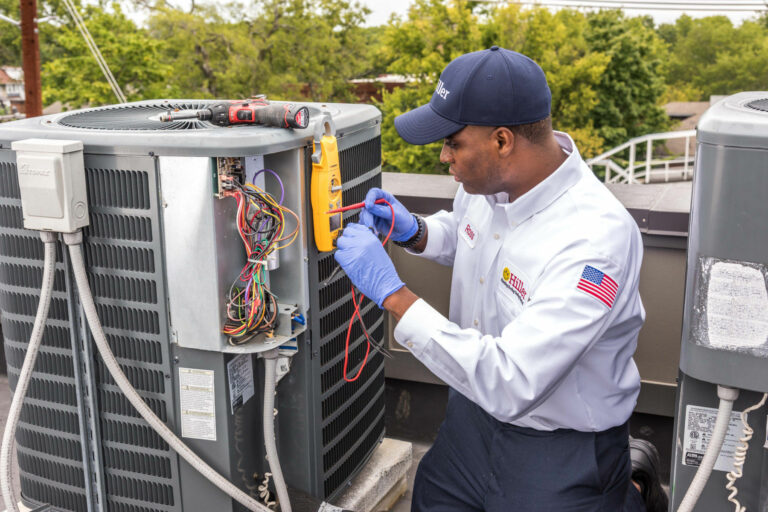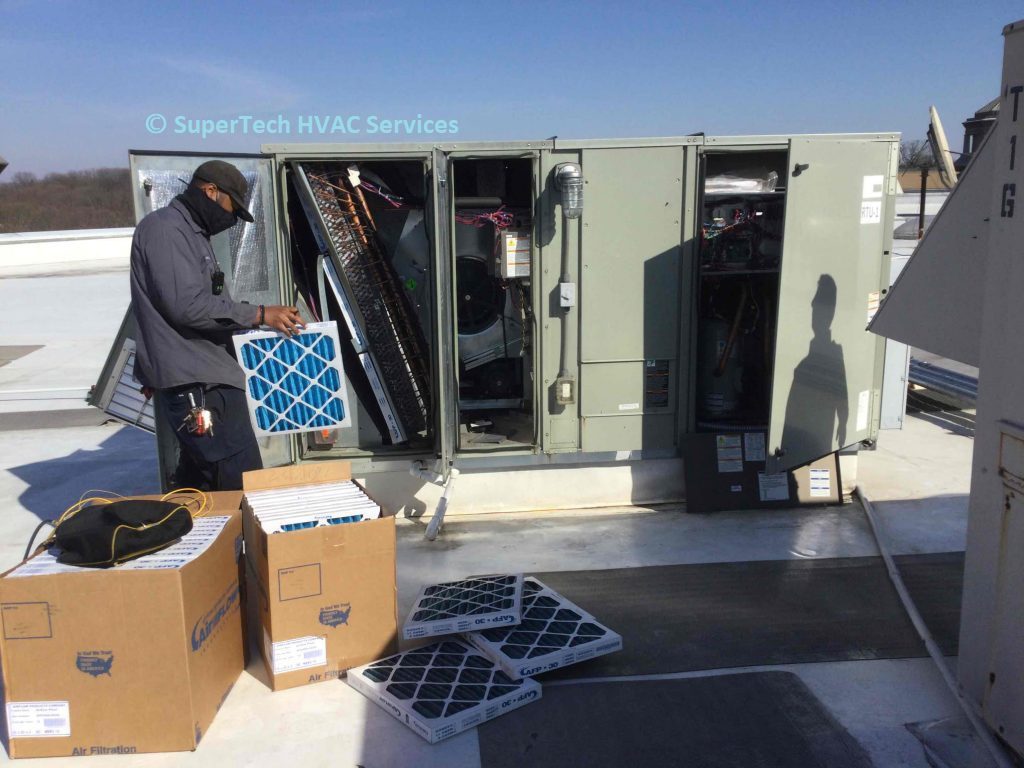What You Need to Know About heat pump replacement ooltewah tn
What You Need to Know About heat pump replacement ooltewah tn
Blog Article
Selecting In Between a Heatpump and Heating System: Secret Considerations for Your HVAC Demands
When assessing heating alternatives for a/c needs, the decision between a heat pump and a heater can be intricate. Each system uses distinctive advantages tailored to details environments and energy effectiveness goals. Understanding these distinctions is essential for making an enlightened option. Trick factors such as setup costs and ecological influence even more make complex the selection process. Which option genuinely lines up with one's convenience and sustainability choices? The following sections will check out these considerations in information.
Understanding Warm Pumps: Just How They Function and Their Advantages
While several homeowners take into consideration various home heating options, understanding just how warm pumps function and their advantages can greatly affect their choice. Heat pumps run by moving warmth instead of creating it. In the wintertime, they draw out warmth from the outside air or ground and move it indoors, while in the summer, they reverse this process, cooling down the home by removing warmth outside. This double capability makes them flexible for year-round environment control.One of the key benefits of heatpump is their energy performance. They use substantially less power contrasted to standard home heating systems, potentially causing reduced energy costs (heat pump replacement ooltewah tn). Furthermore, heatpump have a smaller sized carbon impact, making them an ecologically friendly option. They also require less maintenance than conventional systems, adding to long-term cost financial savings. Overall, understanding the mechanics and advantages of heatpump can aid house owners make notified decisions regarding their heating and cooling down needs
Discovering Heating Systems: Kinds, Procedure, and Benefits
Heating systems can be found in different types, including gas, electric, and oil models, each with distinct functional devices. Recognizing these differences is crucial, as they impact effectiveness and home heating performance. In addition, heaters provide many benefits, such as regular warm output and reliability in chillier environments.
Kinds of Heaters
Heating unit can vary significantly in design and procedure, with furnaces being a prominent option among house owners. There are several types of heaters, each using different fuel sources and technologies. Gas furnaces prevail, leveraging natural gas to produce warmth effectively. Electric heaters, on the various other hand, utilize electric resistance to produce warmth, frequently favored for their simple installation. Oil heating systems, while much less typical, work in locations with limited gas gain access to (ductless mini splits). In addition, condensing furnaces optimize energy efficiency by reusing and recording exhaust gases. Each type operates via a system of heat exchangers and ductwork to disperse warm air throughout a home. Comprehending the distinctions in between these furnace types is important for notified cooling and heating decisions
Benefits of Heaters
For house owners looking for reputable heat during chilly months, the advantages of furnaces are substantial. Heaters supply constant heating, guaranteeing even temperatures throughout the home. They are particularly efficient in extreme cold, typically exceeding warm pumps in cold problems. Various types, consisting of gas, electric, and oil heating systems, use flexibility to meet varied needs and preferences.Furnaces additionally tend to have reduced preliminary installation prices compared to warmth pumps, making them a much more obtainable alternative for numerous. Their durable style adds to a longer life expectancy, with lots of units lasting over 15 years with appropriate maintenance. Additionally, modern heaters are typically furnished with advanced technology for improved efficiency, which can cause reduced energy costs. On the whole, furnaces continue to be a dependable choice for efficient home heating.

Energy Effectiveness: Contrasting Heat Pumps and Furnaces
When comparing energy performance in between heatpump and heaters, the Seasonal Power Performance Ratio (SEER) plays a necessary duty in identifying efficiency. Additionally, an operational expense evaluation discloses the lasting economic effects of each system. Recognizing these factors can direct homeowners in making educated choices regarding their heating solutions.
Seasonal Power Efficiency Ratio
Energy effectiveness plays an essential function in the decision-making process between heatpump and heaters, especially when considering the Seasonal Power Effectiveness Ratio (SEER) This metric steps the cooling performance of heatpump over an entire cooling season, providing a standard means to evaluate efficiency. Higher SEER scores indicate greater power effectiveness, converting to reduced energy usage and minimized utility expenses. In comparison, heaters are usually assessed using the Annual Gas Usage Effectiveness (AFUE) rating, which mirrors home heating effectiveness. When comparing these 2 systems, property owners ought to focus on SEER rankings for heatpump, as they directly effect total power savings and environmental sustainability. A complete understanding of SEER can especially affect the long-lasting complete satisfaction and cost-effectiveness of the chosen HVAC remedy.
Operational Price Evaluation
Understanding the operational costs related to heatpump and heaters is important for home owners assessing their alternatives. Warm pumps typically offer greater power effectiveness, converting electric energy right into warm with minimal waste. This results in reduced regular monthly utility bills, specifically in moderate climates. Alternatively, traditional heaters, specifically gas versions, might have reduced in advance prices but can incur greater operational expenses with time due to fuel rates and performance ratings.Moreover, warmth pumps can operate as both heating and cooling down systems, possibly lowering the need for different cooling and heating units. While first financial investments for warmth pumps might be greater, their long-lasting financial savings in power performance can make them a more cost-efficient choice for lots of households. Mindful analysis of neighborhood energy rates is necessary to figure out the most effective option.
Setup Expenses: What to Anticipate for every Furnace
Installation expenses for furnace can differ considerably in between heatpump and heaters, influencing homeowners' choices. Warmth pumps generally have higher in advance installation expenses, normally ranging from $3,500 to $8,000, depending upon the system size and intricacy of installment. This includes the outdoor unit, interior handling system, and required ductwork adjustments. Conversely, heaters tend to have reduced initial prices, averaging between $2,500 and $6,000, which can be appealing for budget-conscious property owners. Nevertheless, installment expenses can boost if comprehensive ductwork is required.Moreover, the option of fuel kind for heaters-- all-natural gas, lp, or electrical-- can also affect installation costs. While warmth pumps supply energy efficiency, their initial financial investment may prevent some customers. Inevitably, about his reviewing installment expenses along with long-term savings and effectiveness will certainly aid property owners in making informed decisions about their heater.
Environment Factors To Consider: Which System Performs Better in Your Area
Exactly how do climate conditions affect the performance of furnace? The efficiency of warmth pumps and heating systems can vary greatly relying on the regional environment. In modest climates, warm pumps succeed by efficiently moving warm from the outdoors air, making them an energy-saving alternative. Their effectiveness diminishes in very cool temperature levels, where they may struggle to draw out enough heat. On the other hand, furnaces, especially gas models, supply consistent and trustworthy heat no matter outside problems, making them more suitable in chillier regions.In areas that experience milder winters, heatpump can operate properly year-round, supplying both heating & cooling. look at this site On the other hand, regions with extreme wintertimes typically take advantage of the toughness of heaters. Eventually, comprehending the local climate is vital when making a decision between a heat pump and a heating system, as it directly impacts their operational performance and overall efficiency.
Upkeep Demands: Long-Term Take Care Of Warm Pumps vs. Furnaces
While both heat pumps and heating systems call for regular upkeep to assure peak performance, their details demands and care regimens differ considerably. Heating systems typically need less frequent interest, with annual examinations being adequate to look for gas leakages, clean filters, and analyze overall functionality. Their less complex design commonly permits straightforward repairs.In comparison, heatpump necessitate semiannual maintenance as a result of their dual duty in heating & cooling. This consists of cleaning coils, inspecting refrigerant degrees, and guaranteeing that both the outside and indoor systems function at their ideal. Furthermore, warmth pump maintenance often entails more complex parts, making specialist servicing essential.Neglecting upkeep can bring about reduced effectiveness and boosted power costs for both systems. Inevitably, homeowners should take into consideration these long-term care demands when selecting in between a heat pump and a heating system, as positive upkeep can expand the lifespan and performance of either system considerably.
Ecological Influence: Choosing a Sustainable Heating Alternative
The environmental impact of furnace is a vital evaluation for property owners seeking sustainable options. Warm pumps are usually extra energy-efficient than conventional heaters, as they transfer heat instead than produce it, substantially minimizing carbon exhausts. By making use of renewable resource sources, such as geothermal or air-source heatpump, property owners can additionally lessen their ecological footprint.On the other hand, natural gas furnaces give off greenhouse gases and contribute to air pollution, though they usually give higher warm outcome. Nevertheless, advancements in technology have resulted in the development of high-efficiency furnaces that decrease emissions.Ultimately, picking a furnace includes weighing efficiency versus environmental influence. Property owners are urged to review local energy sources and rewards for renewable systems, making certain an option that straightens with both personal comfort and environmental duty. The decision influences not just instant convenience however also lasting sustainability and ecological wellness.
Regularly Asked Questions
How Much Time Do Warm Pumps and Furnaces Normally Last?
The lifespan of warm pumps normally ranges from 15 to two decades, while heating systems can last between 15 to 30 years. Routine upkeep substantially influences their durability and efficiency in giving heating remedies.
Can I Use a Warm Pump in Exceptionally Cold Climates?
Heatpump can run in exceptionally cool climates, however their performance diminishes as temperature levels drop. In such problems, supplementary home heating resources may be needed to keep comfy interior temperature levels and assure peak performance.

What Is the Sound Level of Warmth Pumps Versus Furnaces?
The noise degrees of warmth pumps and heating systems vary considerably. Usually, warmth pumps operate even more quietly than standard heating systems, making them visit this website more suitable for those delicate to seem, while furnaces might produce louder operational sounds during home heating cycles.
Are Warm Pumps Suitable for Both Heating & Cooling?
Heatpump are indeed ideal for both cooling and heating (furnace replacement). They function by moving heat, providing effective temperature level control year-round, making them a versatile selection for house owners looking for an all-in-one heating and cooling option
What Size Heating Unit Do I Required for My Home?
Identifying the suitable size heating system for a home needs reviewing variables such as square video footage, insulation quality, local environment, and the home's format. Consulting a professional can guarantee an exact evaluation and ideal comfort. Warmth pumps generally use higher energy performance, transforming electrical energy into warm with marginal waste. In modest climates, heat pumps stand out by effectively moving warmth from the outdoors air, making them an energy-saving option. Conversely, heating systems, especially gas models, supply constant and trusted warmth regardless of outside problems, making them more effective in cooler regions.In areas that experience milder wintertimes, warmth pumps can operate properly year-round, giving both home heating and cooling. Warmth pumps are generally much more energy-efficient than conventional furnaces, as they transfer warmth instead than produce it, significantly minimizing carbon discharges. By using renewable energy sources, such as geothermal or air-source heat pumps, homeowners can further decrease their environmental footprint.On the other hand, natural gas heaters give off greenhouse gases and add to air contamination, though they commonly give greater heat output.
Report this page